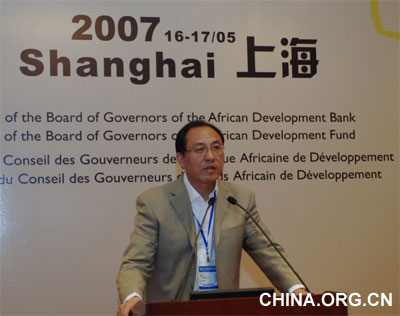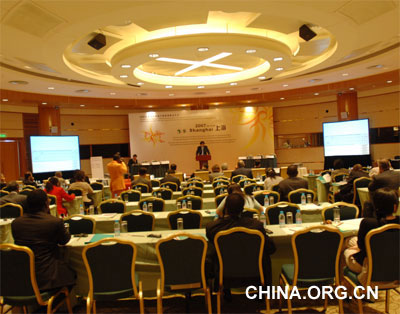On the sidelines of the African Development Bank Annual Meeting held in Shanghai yesterday, environmental experts from Japan, China and South Korea put forward their shared experiences in marrying environmental protection and sustainable development with their African counterparts.
Professor Ma Zhong, dean of School of Environment and Natural Resources, Renmin University of China, gave his views on basing a new market mechanism with fiscal instruments going towards protecting the environment.
Ma specified that environmental fiscal expenditures, taxation and pricing, and environmental fiscal instruments (EFI) could all work together in improving overall environmental quality while simultaneously making local residents and companies better off. Last year alone, the value of the pollution levy system in China amounted to over 1 billion yuan. Ma also added that, for the duration of the 11th Five-Year Plan (2006-2010), the Chinese government would bear the brunt of environmental protection investment, accounting for over 50 percent there of. Additionally, an environmental fiscal expenditure account will soon be established.
However, before these admirable goals are met, many policy and institutional obstacles must be overcome. These range from the under-pricing of environmental goods and services, the need to overhaul the current lackluster planning system, and the central government's poor fiscal capacity to assume environmental protection on the creation of EFI.
With sewage treatment having been made a focus of this year's African Economic Outlook, Ma shed light on the frequent levying of urban wastewater discharge fees in China while also proposing the introduction of a water resources tax. He stipulated that China's strong background in sustainable development studies could act as a compass to African countries seeking to emulate this success.
This year's African Economic Outlook released by African Development Bank and OECD Development Center on Monday revolved around the twin themes of water and sanitation in Africa. It reported that although water availability remains good overall on the continent, the dearth of any sector-specific infrastructure or investment is impairing any progress.
Professor Kazuhiro Ueta from Kyoto University of Japan, addressed the relationship between his country's economic growth and environmental destruction, stating that it provided a realistic sustainable development policy framework which could be applied to African countries. Environmental protection has cemented its position as a key factor in sustainable development as well as in an economy's "green growth" alike for Asian and African countries.
Finally, Professor Bok Yeong Park from the Korea Institute for International Economic Policy focused on a case study outlining the desirable social consensus to be reached in balancing development and the environment.
(China.org.cn by staff reporter Li Shen in Shanghai, May 17, 2007)





